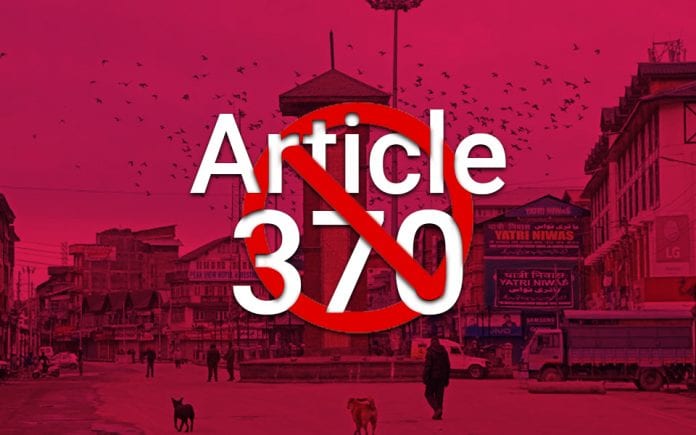How removal of Article 370 will influence the real estate sector in J&K and Ladakh?
By Abhay Shah, Realty Quarter

On 5 August Home Minister Amit Shah proposed the removal of Article 370 which gives Jammu and Kashmir unique status. The Center has notified the Parliament that the Jammu and Kashmir (J&K) state will be divided into two Union Territories (UTs) – Jammu and Kashmir would become a Union Territory (UT) with a legislature while Ladakh would be another UT without a legislature.
Article 35A which says that property may only be acquired by permanent inhabitants has been also repealed in the state.
Here is a look which tells how these changes may influence the real estate sector in the union territories.
Although it may certainly open up potentials opportunities of development-led economic growth in the regions of J&K and Ladakh in the long run, there is too much in expectation of an increase in assets or an upsurge in housing, industrial and retail sectors, say experts.
Even local investors would be careful to invest in these ‘risky’ markets before investing money. That said, once the dust is fixed, the effect would be felt on the hospitality and tourism segments followed by retail and entertainment, not to mention healthcare and education, they say.
The disintegration of the long-running Article 370 is a historic moment, says the senior vice president, Niranjan Hiranandani, senior vice president, Assocham and National President- NAREDCO, which offers potential opportunities for development-driven economic growth in J&K and Ladakh union territories. This incredible step will lead to the repeal of the ban on real estate development by the individuals living outside the State. This will boost the financial growth of the biggest democracy and create stronger jobs possibilities to contribute to the anticipated development of the nation’s GDP.
The J&K administration is authorized in Article 35A to determine who is a ‘permanent resident’. Some unique rights are given to the permanent resident. Only permanent residents can buy property, settle and obtain government jobs and state scholarships.
The Constitution of the State, when adopted in 1956, defined a permanent resident as an individual who, on 14 May 1954, fell under state jurisdiction, or who was a 10-year-old resident and legally acquired property. The article is also referred to as the Law of Permanent Residents and also denies the property right to state women, residents, if they marry an ‘outsider’ person. It also covers kids born to women of such kind. The scrapping of Article 370 and Article 35 A would require all this to go, and technically even those who are not a resident could invest in real estate within the union territories.
Although it may enable outside individuals to invest in real estate in both the union territories, this certainly would not lead to the rush of purchasing residential and commercial property, in particular, a second home. The model to be undertaken is similar to the Puducherry model. These freshly formed union territories would have the same rules once these modifications have been enacted, says another real estate specialist who did not wish to be cited. There are also limitations on estate purchases in states like Himachal Pradesh, Uttarakhand and even North East.
“Having said that, prior to investing in these border areas, investors would be highly careful. These are all problematic geographies. The region would proceed to be politically stable for some moment, even when Article 370 is scrapped. Investors would not jump at this chance unless and until the socio-political scenario stabilizes. However, gradually, an investment can be realized in the structured growth of infrastructures, such as hospitals, schools, colleges, hospitality, tourism sectors and eventually retail and entertainment. Food processing sectors can even be boosted, possibilities for e-commerce competitors could be present, but all of these have to be incorporated in order to enhance the purchasing power,” the specialist said.
GenReal Advisers, Anckur Srivasttava suggests that there could be an investment in the improvement of the tourism and hospitality sections, also concentrate on entertainment and the retail sector, which the teenagers of these fields need. With regard to residential and commercial markets, the real estate market was never mature – the market was always restricted, the buy and selling of property were artificially barred. All this can take a while to alter, he adds.




















































































